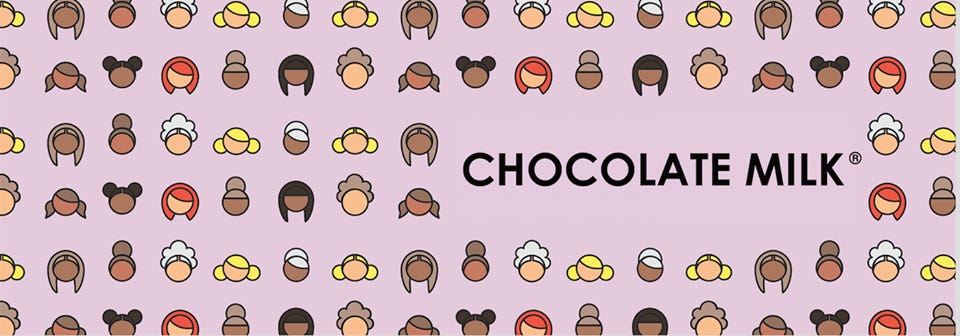FM Weekly #4
‘Imposter syndrome,’ or the questioning of one’s own accomplishments or expertise, is written about often in healthcare. I remember feeling it as a nursing student, my hands so uncertain in touching someone, even just to help them move or take their vital signs. I assumed they were very aware of my inexperience. I remember feeling it as a midwife, attending the first couple of births of my professional life, really thinking I had no business being a birth provider let alone someone in the room. I assumed they were very aware of my newness to the entire process. As providers gain experience and confidence, the majority of imposter syndrome fades, most of it ideally develops into professional poise, and for the self-aware becomes a teaching point and supportive conversation for those new to practice, in their own growth process.
There’s something about ‘imposter syndrome’ that I have been thinking about lately, and that’s the exhaustive navel-gazing-ness of it all. I remember times in my student career when all I could think about was little I knew, or all I could ruminate on was whether I had the right to be where I was, to the point that it could be distracting from patient care. I could zone out while asking someone “What brought you in today?” all the while thinking “And what gives me the right to be the one you tell that to?!?” While that question is humbling and important and (even years into practice) critical for checks and balances in power dynamics, it isn’t the most important question in the room. It took me years to really let it sink in: ‘imposter syndrome’ is about the provider. And in healthcare, the experience is never about the provider. It’s about the people for whom we are honored to provide care. The most important question in the room is whichever one that person is asking. But that doesn’t make ‘imposter syndrome’ any less real.
When I started writing the blog in 2012, I was brand new to practice and felt ‘imposter syndrome’ all day at work. For over a year. For over two years. There’s only so much of that any one person can handle, so when it came to writing I picked topics about which I could feel confident, like feminism and music and anger (these are still topics about which I feel confident). All the same, writing for the masses (aka 15 of my closest friends at first) was nerve-wracking. So, when I first published, it was not as my name, but as the Feminist Midwife. Even with this online alter-ego, I still felt like I didn’t deserve the space I had named as my own, so I declared caveats that could maybe/somehow/someway make me worthy: I outed myself as a newbie provider, stated that my goals were to continue to learn, and that by doing so anonymously, I could only feel as brave or as ‘out there’ as I wanted to be. When a post I wrote went viral (whatever that meant back in the day), I was outed at work in a very uncomfortable way. I then had to decide to write under the Feminist Midwife name and connect my own to it, or stop writing and reassess. I chose to connect my name. This de-anonymizing effort also required a new realization of the lens from which I wrote: I was an expert.
Identifying as an expert was… a process. It took mental math, and some days, it still does. I had graduated midwifery school, and been dubbed academically and clinically as a midwife, and midwives are experts. Fullstop. I had already been dubbed academically and clinically as a nurse for years, and nurses are experts. Fullstop. If what mattered to the people for whom I was honored to provide care, or to the people quoting me in an article, was that I was a midwife, then that designation should be what mattered to me, not the caveats and the sidebars and the things still to learn. Fullstop. Once I embraced my identity as an expert, writing about my work and presenting at conferences and expressing professional opinions about issues became part of my outward persona and expertise. Midwives are experts. Fullstop.
Imposter syndrome still creeps in, here and there. Right before I present at a conference I’ll wonder “Who am I to think my sole research or opinion is enough to claim expertise?” And then just by introducing myself and beginning to speak, I’ll remember “I’m a midwife and an expert.” My physical therapist said to me this week, “You never realize how much you know until you sit in front of people who don’t.” BRILLIANT.
I’m trying my best to do the same with this newsletter. TBH I’ve felt some serious ‘imposter syndrome’ embarking on this new endeavor. But I’m giving it a go anyway. And why? “And what gives me the right…?!?” 1) I’m making this space so I get to define it, and confidently; 2) I’m a midwife and that makes me an expert on all sorts of things; 3) Sometimes what I write about isn’t about me, it’s about you and whoever else is reading this. And about the people for whom I’m honored to provide care, and about those trying to do the same. And sometimes about me, too. And that’s enough.
Insert here brief tangential personal thoughts and real diatribes with friends about how imposter syndrome applies moreso to womxn in a mxn’s world, or to advanced practice clinicians in a physician’s world, or to young folx in a field of significant generational gaps in leadership and vision…
This weekend’s song for you: The Chain, The Highwomen - From the Motion Picture Soundtrack “The Kitchen”
As I mentioned in the blog post advertising this newsletter, I have started valuing my time and writing in new ways. To that end, this newsletter will be free and public for the first few weeks, and then will switch to a subscription model. I bring this up now so it isn’t a surprise. Many people have already had strong reactions to my “charging for content”: I just don’t see it that way. I will still write public long form narratives on the blog, but this curated content, to me, is worthy. Would love feedback on these first few issues as I figure out the overlaps of what is worthy to me and others. Please join in.
White feminism (or rather, white feminists: do the work):
There was a lot of talk online last weekend about the 100 year celebration of womxn’s right to vote. Errr…
Asian womxn: 1952
Native American womxn: 1957
Black womxn: 1965
So, try again. Also, start talking about voting to everyone you know. Further, while you’re following the #19thAmendment trend, switch on over to the #25thAmendment and think about what you’re doing to contribute to #ITMFA.
THEN: It’s Black Breastfeeding Week! Did you know there’s a documentary about black women who breastfeed (which by the way is its own hashtag you should look up) called “Chocolate Milk”? Specifically, it’s an “exploration of the racial divide in breastfeeding.” IF YOU DID NOT KNOW, THERE IS A RACIAL DIVIDE IN BREASTFEEDING. There are 200 screenings of the film scheduled nationwide - go see it! Follow accounts like @chocolatemilkdoc and @blackmamasmatter and @nationalblackdoulas and @blackmidwivesalliance. Repost their stuff and spread the word! (If you can’t make it to a screening, that’s no reason not to learn/listen/understand, white womxn. There are many testimonials for Chocolate Milk available on their website.)
Midwifery / Birth Work:
The Journal of Midwifery and Women’s Health (JMWH) recently updated its Aims and Scope, which serve as the journal’s mission and vision. These updates, written about in the July/August editorial, include intentionality related to health equity, sexual and reproductive health, and gender inclusivity. Journal Editor Francie Likis continues to push the work forward AND publicize it, which is so great. Her editorial calls out health equity and the reproductive justice lens, specifically discusses abortion and the Journal’s work to speak out against restrictions, and discusses gender neutral and inclusive language. LOVE IT.
What I’m Writing / Speaking About Lately:
It’s just hitting my airwaves that many of the midwifery programs in the US reference my writing. Many. I mean, how cool is that? I’m trying to acquire the full list so that I can update the years-old posts that people are advised to read in this day and age. The most popular one is Know: Part I. I’ll be talking with faculty at UCSF in a few weeks about performing pelvic exams without stirrups, and their Director gave them the following references as a pre-game to our discussion:
- How to perform pelvic exams without footrests / stirrups: http://www.feministmidwife.com/2016/11/02/empowering-gynecologic-exams-speculum-care-without-stirrups/#.XUHIhJNKjdQ and https://www.innovating-education.org/2017/07/teach-speculum-care-without-stirrups/
- Editorial on Protecting our Patients from Sexual Assault https://www.healio.com/psychiatry/journals/jpn/2018-3-56-3/%7Ba017a0be-8d80-4b83-81d1-eca411e03873%7D/protecting-our-patients-from-sexual-assault
Flipping the Script:
Provider: Tell me about your sexual partners.
Patient: (laughs) I sleep with men. (laughs again) The nurse asked me this, too, and I told her that I’m normal. It’s whatever the normal response is.
Provider: (doesn’t skip a beat, or change facial expression other than to perhaps smile) I ask all of my patients because it’s helpful to know about them to be the best provider I can be for their sexual and reproductive health. Thanks for letting me know you identify as heterosexual.
Patient: Oh, okay. That makes sense.
This is based on on actual interaction over the past few weeks. These brief interactions can feel harsh and harmful to any queer-identified provider. I also fully recognize that, for this patient, theirs was an honest response, and perhaps is the first time they’ve ever been asked about their sexuality. I respect the fact that being asked about one’s sexuality for the first time may elicit unexpected reactions. I’ll write further about being a queer provider, especially one who is cis and femme and thus has the privilege of deciding whether to come out, another time. But, for queer midwives who are seeking community, and knowing these interactions with patients happen all the time and it’s helpful to talk with others about them, there is a great group called the Queer and Trans Midwives Association (QTMA). There’s a public page and a private community, so allies can follow along on the public page.




